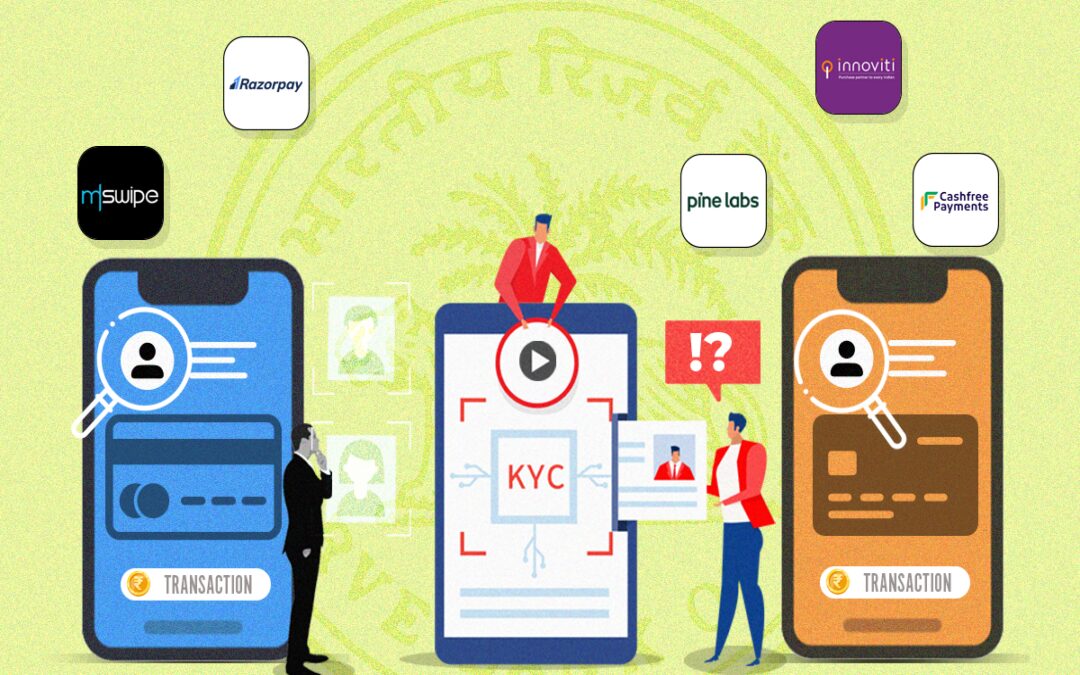The Reserve Bank of India’s (RBI) draft norms around stricter Know Your Customer (KYC) rules for payment aggregators could slow the onboarding of online merchants by as much as 90%, industry insiders said.
The new rules will be applicable to existing players across online payment platforms, such as Razorpay, Cashfree, and PayU, card payment companies, such as Pine Labs, Innoviti Payments, and MSwipe, and QR code deployers, such as PhonePe, BharatPe and Google Pay.
For existing players, they will have to engage in a re-KYC exercise on existing merchants, and for onboarding new merchants, a bank-grade KYC has been suggested by the regulator.
“One physical KYC can cost as much as Rs 400-500 depending on many factors, even if we are talking about 10 lakh merchants for a specific service provider, we could be looking at around Rs 40 to 50 crore of instant cost impact,” said a top executive at a large payment firm, on the condition of anonymity.
CPV, or contact point verification, is a part of enhanced due diligence the regulator has suggested for payment players, which means physical visits will be required at merchant outlets for verification.
It could push up operational costs by three to four times for these digital payment companies, as per industry estimates. The time taken to onboard new merchants could increase to a few weeks – from a few hours to a couple of days currently.
“The large players in the industry could be signing up around 2,000 to 4,000 merchants on a daily basis for online payments, but given the current capacity (going by the draft rules) only 10% of the sign up applications can be completed on time, there is a chance that the remaining 90% will drop off,” the executive quoted above said.
Also read | On KYC compliance front, payment aggregators may be second to some
Impact on small sellers
Another industry executive said that small sellers who use platforms like Instagram or Facebook to sell products like pickles, apparel, jewellery and such might find the onboarding process too demanding.
“They might go back to just asking their customers to do bank transfers or pay via UPI, some might also switch to cash payments,” the executive said.
This could be a major lost opportunity for payment aggregators, who have relied on new generation direct to consumer brands for growth in merchandise value. It could also deprive these brands of value added services like banking, credit on top of payments from these payment aggregators. Players like Cashfree, PayU, Razorpay have grown their business on top of these very internet sellers.
The RBI has also suggested stopping an industry practice of direct settlement of funds from the merchant escrow account to vendors. This could disrupt business policies of small marketplaces which typically do not open escrow or pass-through accounts with banks. They relied on payment aggregators for this service.
“This service was used for platforms to deduct a small commission out of a sale process and settle the remaining funds directly into their vendor accounts, going forward this stops,” the executive quoted above said.
Investment in risk assessment
Payment aggregators relied on light touch KYC of their merchants since the bank accounts were already KYC-ed. But now the RBI wants these intermediaries to undertake their own due diligence too.
This means these companies will have to invest in setting up their own risk management systems, which are expensive. And they will also have to monitor these merchants on an ongoing basis.
“Large firms will anyway do it, they have the financial strength to invest, but smaller payment firms will be impacted by this and many might move out of the business,” said a founder of a mid scale payments startup.
Another section of the industry believes that it will create a level playing field for all players. A senior banker in the know said that QR code deployers were onboarding merchants hardly with any checks, now all that stops.
“From online players to hardware terminal deployers to QR code deployers, everyone comes under the regulatory ambit, this was needed since payment companies deal in public money, this will help organise the sector in the long run,” the banker said.
Ankit Ratan, cofounder, Signzy, said that the regulator wants players to implement mechanisms to monitor transaction activity of merchants.
“In today’s day and age, superior AI-led technologies are in place that offer 24 by 7 transaction monitoring for all digital payments and can help PAs strengthen the merchant onboarding process,” Ratan said.











